“To remain competitive, the Polish economy needs clean, safe, green and cheap energy. PGE’s updated strategy is a well-thought-out, rational and responsible path for the development of Poland’s energy sector based on modern solutions, said Wojciech Dąbrowski, President of the Management Board of PGE Polska Grupa Energetyczna. The PGE Group will end the use of coal to generate electricity and heat by 2030. It will allocate PLN 125 billion for investments in, among other things, offshore wind farms, energy storage facilities, the construction of a nuclear power plant, the modernisation of the distribution network and the decarbonisation of the heating sector. By 2040, the PGE Group will build 12 GW of capacity in renewable sources.
“PGE is accelerating the transformation of the Polish energy industry. It will be the first energy group in Poland to achieve climate neutrality as early as 2040, 10 years earlier than the PGE Group’s 2020 strategy. The strategy update is a reaction to the geopolitical and economic situation in Europe. The implementation of PGE’s strategy will result in the strengthening of Poland’s energy security and sovereignty, as well as access to modern services and clean energy for customers,”
said PGE Polska Grupa Energetyczna CEO Wojciech Dąbrowski.
By 2030, the PGE Group plans a total capital expenditure of PLN 125 billion. In doing so, it will strengthen its position as an energy market leader, expanding its generation potential and enhancing Poland’s energy security.
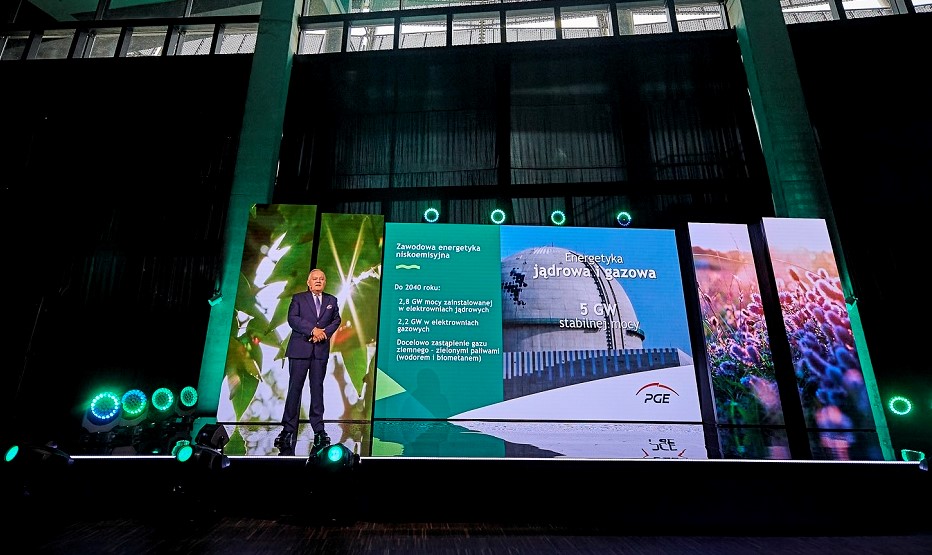
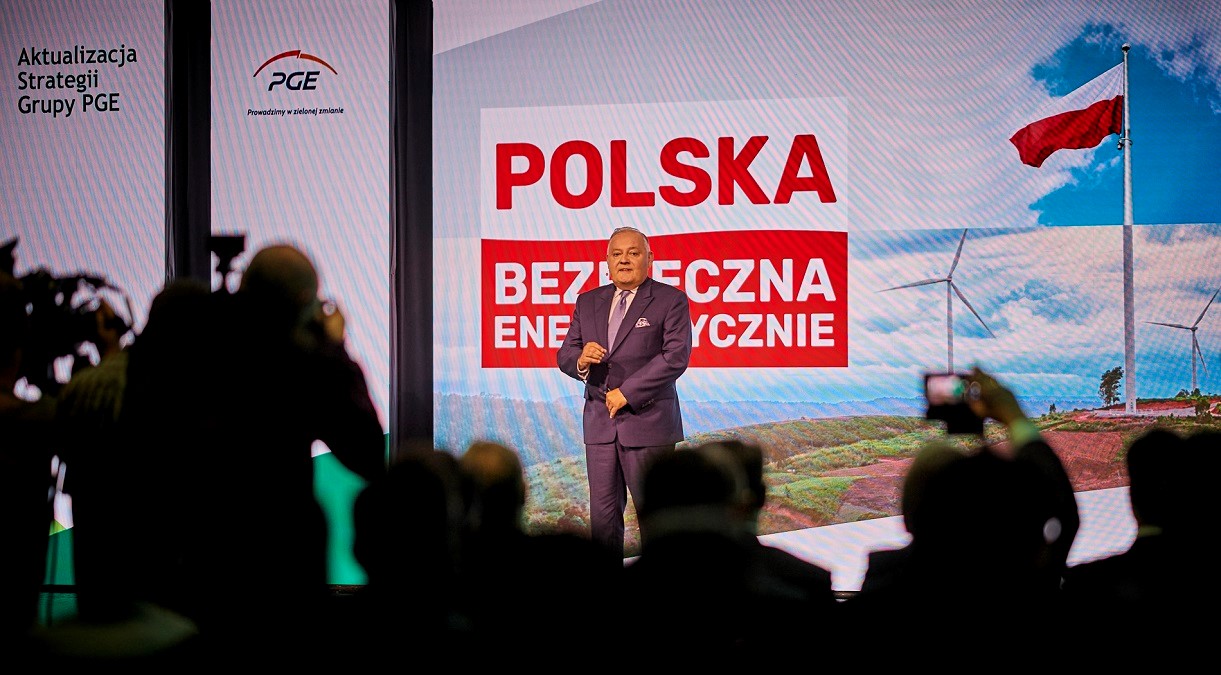
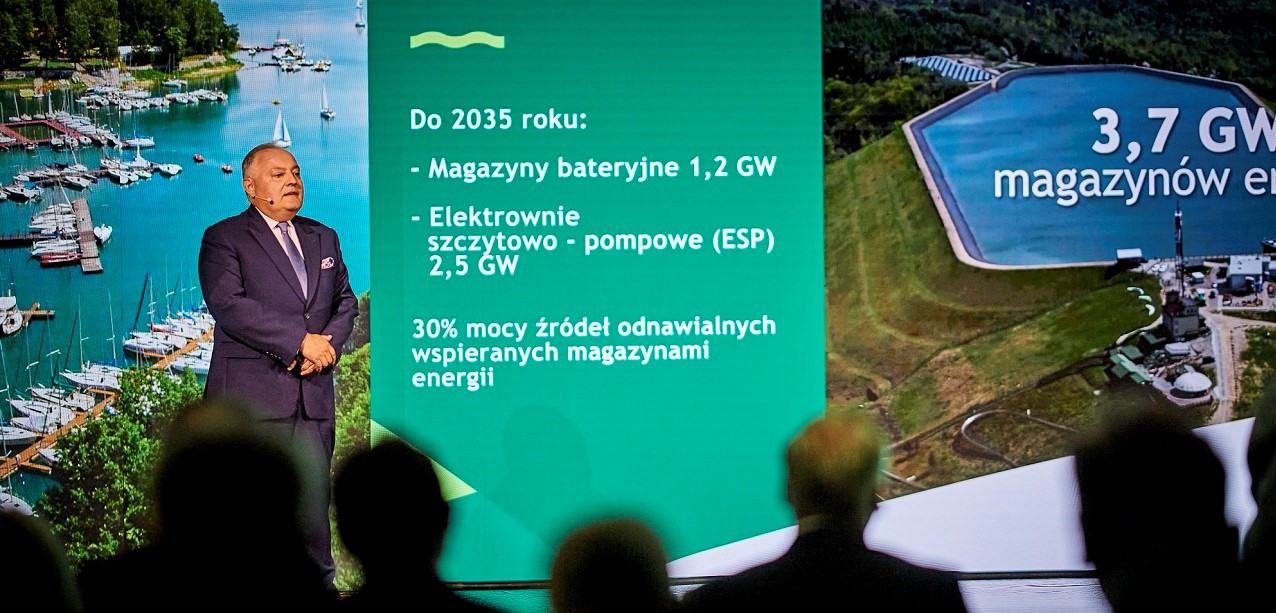
Development of clean energy sources
PGE Group’s goal in the renewable energy segment is to achieve by 2040 more than 7 GW in offshore wind farms in the Baltic Sea, 1.5 GW in onshore wind farms and 3 GW in photovoltaic installations.
System flexibility and a stable energy supply will be ensured by a professional low-carbon power plant with a total capacity of 5 GW in 2040, consisting of a nuclear power plant implemented in consortium with a Polish and Korean partner and gas-fuelled power plants. Before 2040, gaseous fuel will be replaced by green fuels (e.g., biomethane, hydrogen, ammonia).
By 2040, PGE will have 17 GW of generation capacity based entirely on zero and low-carbon energy sources. Only the offshore wind farms built by PGE will be able to supply around 26 TWh of energy, which is the amount currently required by 11 million households in Poland.
Large-scale energy storage facilities will provide a solution to the limitations arising from the unstable operation of RES – dependent on volatile weather conditions. The Group’s strategy is to strengthen PGE’s position as the national leader in the energy storage sector by expanding the current potential of pumped storage power plants and building battery storage facilities, which are expected to provide the Polish power system with a capacity of 3.7 GW by 2035.
The PGE Group also plans to commission electrolysers with a capacity of 300 MW by 2035. The conversion of electricity produced by the PGE Group’s RES installations into green fuels will help reduce emissions from sectors difficult to electrify completely, such as industry and transport, contributing to their decarbonisation.
Energy storages, electrolysers and hybrid installations together implement PGE’s priority direction of ‘zero unused energy’.
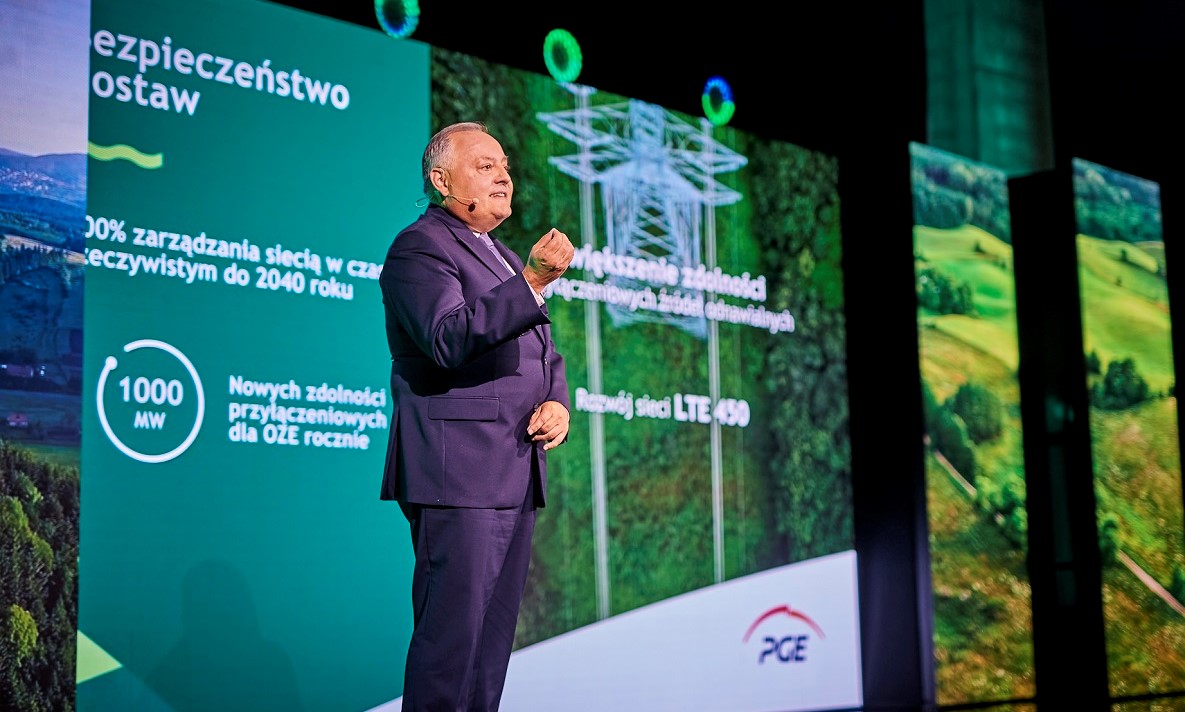
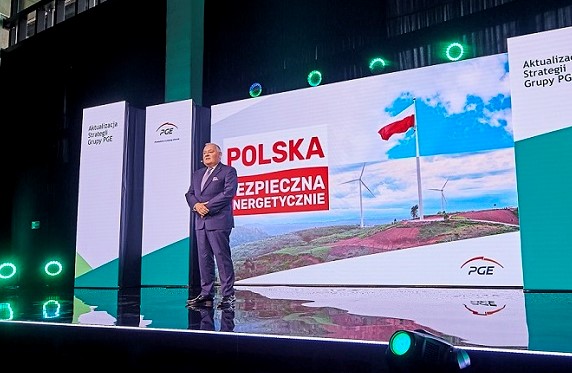
Modern distribution and new services
The key to the success of the modernisation of the sector and the further development of RES in Poland is the expansion of the distribution infrastructure and the implementation of the smart grid concept. The Group’s updated strategy assumes that PGE’s grids will be managed in real-time based on a central system fed by data from fully metered infrastructure and remote energy consumption meters. Automation and smart grid management will increase supply stability and raise the connection potential for further renewable energy sources to up to 1 GW per year.
The modernisation and digitalisation of the energy industry is leading to new development opportunities for the PGE Group, whose objective in the sales area remains the highest customer satisfaction rate in the industry and provides customers with the opportunity to participate in the energy transformation. The Group will provide modern services based on clean energy, developed competencies, experienced staff and modernised ICT systems.
Reducing fixed costs, streamlining operational processes and reducing the time to implement new products are strategic objectives to ensure that PGE’s market offering remains competitive. A stable business model based on clean energy, regulatory and tariff mechanisms and a responsible approach to development will allow the company to maintain or increase its credit rating and open up opportunities for preferential financing.
Decarbonisation of district heating
The PGE Group is consistently pursuing a broad investment programme to decarbonise district heating in 16 locations. According to the updated strategy, the PGE Group will end the use of coal in this segment in 2030, and the modernised district heating systems will primarily use the potential of renewable and electric technologies, supported by heat storage and hybrid solutions. The electrification of district heating systems will be based, among other things, on rapidly developing large-scale heat pumps and electrode boilers. To achieve net zero carbon in 2040, we assume the development of the use of green fuels and CO2 capture technologies.
The decarbonisation of district heating is supported by the rapidly growing role of RES and the developing digitalisation of the entire energy sector. Increasingly emerging surpluses of energy produced from renewable sources will be economically manageable through the electrification of district heating. Modern technologies make it possible to make optimum use – both on a macro and micro level – of solutions such as heat pumps, energy recovery and storage. In the case of large heating systems, we have, among other things, low-temperature systems or distributed hybrid district heating substations, whose sustainable development can provide cheap and environmentally friendly heat for Polish agglomerations.
International ESG standards
PGE’s updated strategy emphasises the relevance of ESG issues, which are of key importance for the Group and its further sustainable development. PGE’s overall business decarbonisation programme envisages the group achieving zero emissions by 2040, reducing gross CO2 emissions by 95 per cent and capturing and offsetting remaining emissions, e.g., by planting CO2-absorbing trees. As a result, PGE customers will receive 100 per cent emission-free, clean energy, the production of which will not be accompanied by the generation of combustion by-products.
At the same time, noting the growing water challenges, PGE expects to reduce water consumption in conventional units by 50 per cent.
The PGE Group will develop a programme for recycling and recovery of raw materials from decommissioned RES installations and implement innovative solutions for the use of by-products of generation and extraction. As part of the implementation of the ESG programme, the Group’s entire management will be held systematically accountable for meeting environmental and climate targets in line with international standards. This will send a clear signal to business partners that PGE wants to support customers committed to environmental protection and sustainable development in their energy transition.
As part of its social role, PGE envisages active participation in the energy transformation process by companies, energy industry employees and citizens. As a transformation leader, PGE is to become a role model for partners. By 2040, it will cooperate with 80 per cent of its business partners who have made an environmental declaration.
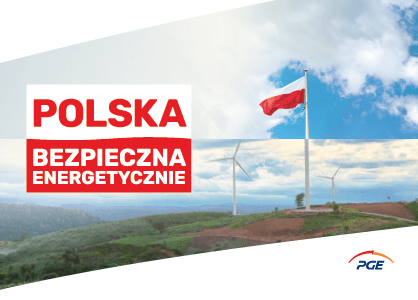
An energy-secure Poland
Alongside the announcement of the update of the Strategy, the PGE Group launched an image and information campaign under the slogan “Energetically safe Poland”. The campaign refers to the assumptions of the updated Strategy and redirects to detailed information contained in a multimedia presentation on the website: https://strategiapge.pl.
Promotional materials will appear in the press, the Internet, outdoor media and TV spots. The campaign will last approximately 30 days.

